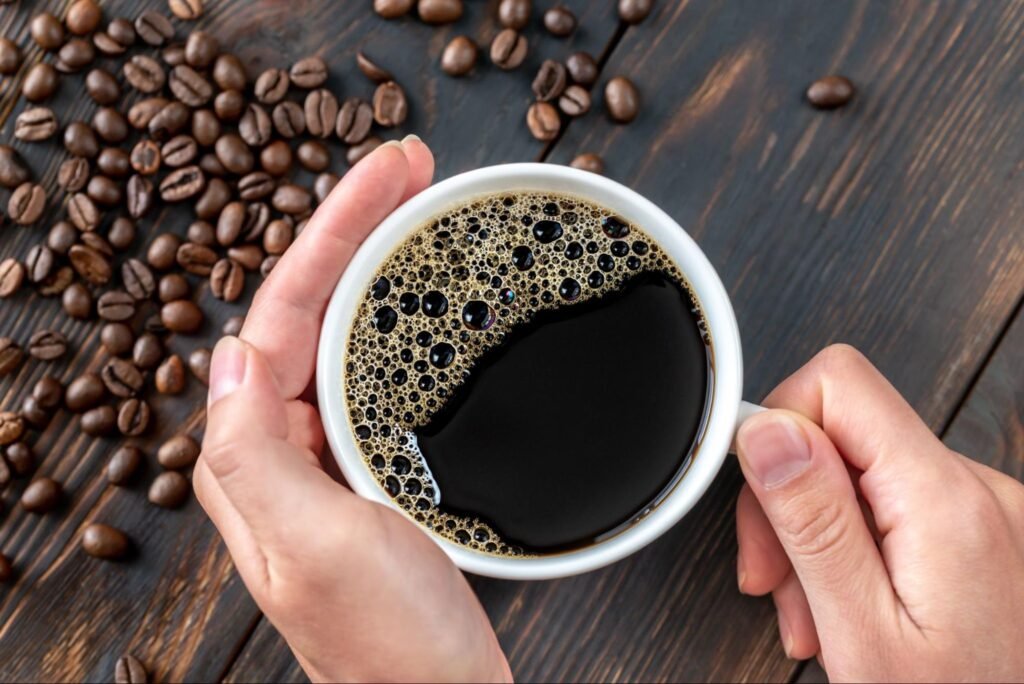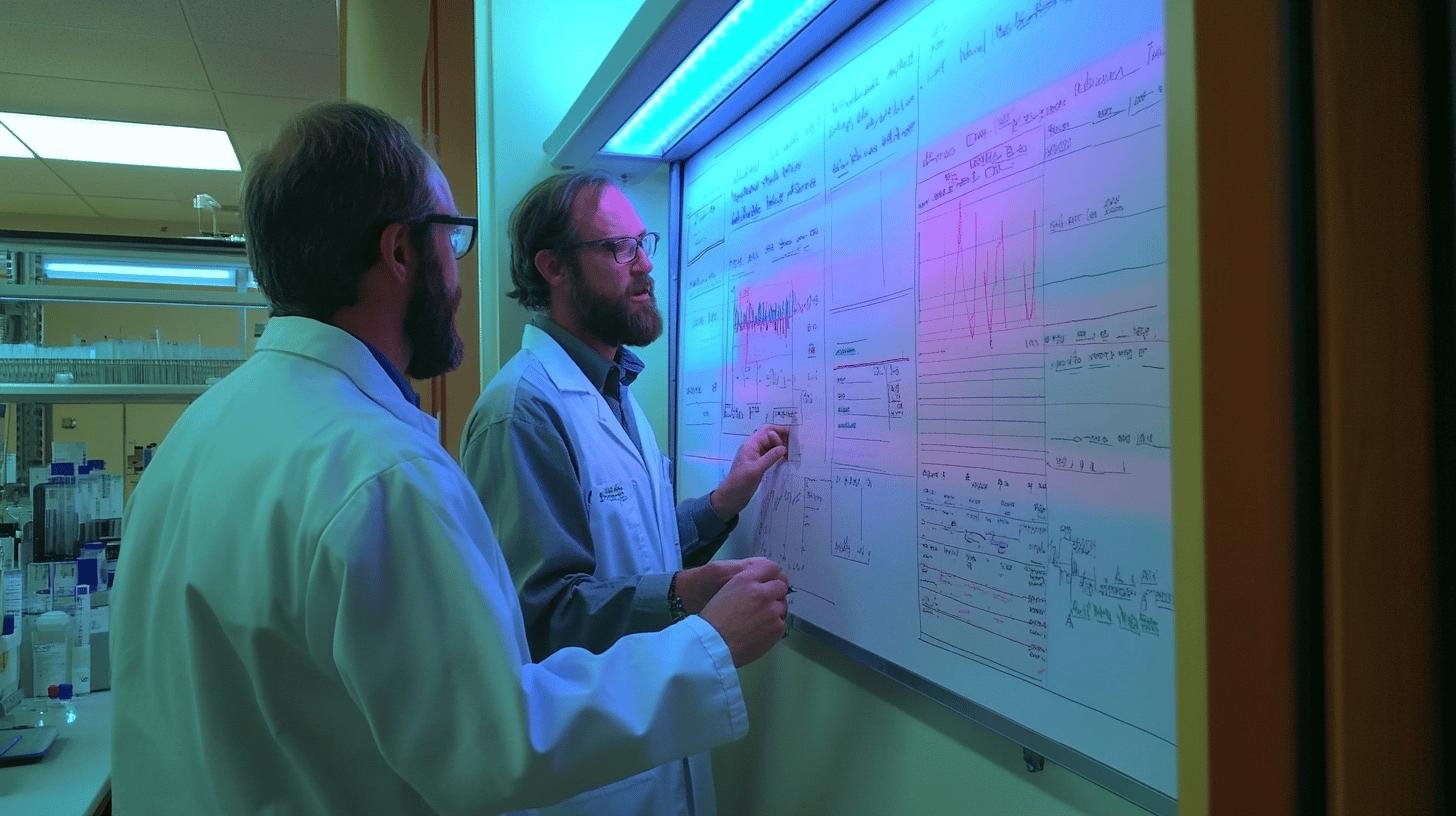
Emerging Approaches Redefining Craft-Focused Customer Experiences
Craft-focused small businesses have always relied on care, precision, and sourcing to stand out. What’s changing now is how those values are shown, not just

Does your morning coffee enhance your testosterone levels, or is that just a myth brewing in the background?
The relationship between caffeine and testosterone is a complex blend of science and speculation. Some research suggests caffeine might elevate testosterone temporarily, while other studies argue there’s no significant effect, and some indicate a potential decrease. This article delves into the intricate dance between caffeine and testosterone, providing insights from scientific studies and expert opinions.
Does caffeine boost testosterone? Let’s find out.
Caffeine is a popular stimulant found in coffee, tea, and chocolate. It increases focus and alertness by blocking adenosine receptors in the brain. This also impacts hormones like cortisol and adrenaline, raising questions about its effects on testosterone. Testosterone is crucial for muscle growth, energy, and overall male health.
Research on caffeine and testosterone shows mixed results. Factors like dosage, frequency, and individual differences could explain these varied results.
5 Key Findings from Studies on Caffeine and Testosterone:
Factors like age, sex, and overall health likely influence how caffeine affects hormones. Consequently, some might see a testosterone boost from caffeine, while others may not experience significant changes.

Understanding caffeine’s impact on testosterone needs a look at scientific research. Various studies have explored this, offering mixed results and highlighting the need for further research. Below are findings from two significant studies.
Researchers examined hormonal changes in overweight men and women after consuming caffeinated and decaffeinated coffee. In men, caffeinated coffee temporarily increased total testosterone and lowered estradiol levels, suggesting a benefit for hormone balance. However, in women, decaffeinated coffee reduced both total and free testosterone over four weeks. This shows men and women may metabolize caffeine differently, leading to varied hormonal outcomes.
A study on male athletes found that caffeine consumption led to a temporary testosterone increase. This short-term spike might benefit athletes seeking better performance and recovery. However, the effects were not sustained long-term, showing the benefits of caffeine on testosterone might be brief. This underscores the importance of considering the context and duration of caffeine consumption.
These studies illustrate caffeine’s nuanced effects on testosterone, emphasizing the need for further, larger-scale research.
Experts agree that caffeine’s impact on testosterone varies based on age, sex, and health. Some studies suggest a temporary testosterone increase after caffeine consumption, while others find negligible or negative long-term effects.
Some experts believe caffeine may act as an aromatase inhibitor in men, possibly increasing testosterone by reducing its conversion to estradiol. Others warn that chronic caffeine consumption could decrease testosterone due to elevated cortisol levels, which negatively impact testosterone production.
4 Expert Opinions on Caffeine and Testosterone:
Considering individual differences is crucial when evaluating caffeine’s impact on testosterone. Genetics, lifestyle, and health conditions all influence responses to caffeine. Therefore, while some may see a testosterone boost, others might not or could experience negative effects.

Moderate caffeine consumption offers benefits like increased focus and alertness. Coffee itself also has numerous health benefits.
Caffeine blocks adenosine receptors in the brain, promoting wakefulness and improving cognitive function. It might also temporarily boost testosterone, contributing to higher energy and improved muscle strength.
However, excessive caffeine consumption carries risks. High caffeine intake can elevate cortisol levels, disrupting hormone balance and potentially decreasing testosterone over time. This can negate short-term benefits and adversely affect overall health, including stress response and immune function.
5 Tips for Balancing Caffeine for Hormone Health:
In the action of understanding caffeine’s impact on testosterone, there’s a complex relationship. Research shows mixed results: some studies indicate short-term boosts in testosterone, others suggest fluctuations based on gender and individual factors.
Balancing caffeine consumption is crucial. High-quality coffee from artisanal brands can offer a better experience. The ongoing question remains: does caffeine boost testosterone? Further research will continue to shed light on this intricate topic.
The effect of coffee on testosterone varies. Some studies show an increase, others a decrease, and some no impact. More research is needed.
Quitting caffeine may lead to hormonal changes. However, the effects on testosterone levels are not well-defined and depend on individual factors.
Research indicates that caffeinated coffee may increase testosterone in men but shows mixed results for women. Decaffeinated coffee may reduce testosterone in women.
Energy drinks like Red Bull contain caffeine and other ingredients. The direct impact on testosterone levels is unclear and requires further research.
The increase in testosterone from caffeine is generally temporary and varies based on factors like individual metabolism, diet, and overall health.
Natural drinks like pomegranate juice, milk, and ginger tea have been suggested to support testosterone levels.

Craft-focused small businesses have always relied on care, precision, and sourcing to stand out. What’s changing now is how those values are shown, not just

How can brands create a more balanced and memorable customer experience by blending artisanal product quality with thoughtful everyday rituals that keep people coming back?

Independent coffee shops have always been about more than caffeine—they’re hubs of creativity, connection, and care. As café culture continues to evolve, new trends are

Introduction Independent cafes win when they feel like the neighborhood’s living room and operate with the discipline of a great kitchen. Below is a quick

Discover how top specialty coffee brands create lasting loyalty through storytelling, sourcing, and community connection. Real tips from 6 industry experts.

Discover the ultimate showdown between two beloved coffee brewing methods: the French press and Chemex. Explore how each technique caters to distinct palates, with the French press delivering bold flavors and the Chemex presenting a bright, clean taste.

Unlock the secrets to brewing the perfect cup of coffee with our comprehensive guide on using a coffee scale. Discover how precise measurements enhance flavor and consistency while eliminating bitterness.

Discover how water temperature plays a vital role in brewing the perfect cup of coffee. This article delves into the ideal temperature range of 195°F to 205°F for optimal flavor extraction, enhancing the enjoyment of high-quality beans.

Discover the world of curated specialty coffee bundles, perfect for enthusiasts seeking quality and craftsmanship. This article explores the benefits of ethically sourced, small-batch beans from brands like Equipoise Coffee, offering diverse flavor profiles that elevate your brewing experience.